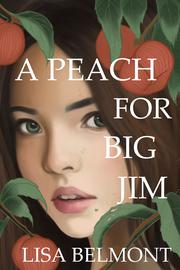Books
A PEACH FOR BIG JIM

On this debut historic novel, a younger
white woman crosses social boundaries in South Carolina in 1947.
13-year-old Chloe Mason is
a part of an previous Southern household that was as soon as rich earlier than the Civil Conflict however
is now struggling to get by. She typically follows her brother Caleb on looking
expeditions within the swamp, and at different occasions, she loses herself in books; each actions
function distractions from her heavy-drinking father’s harsh habits. She
ultimately befriends Large Jim, the seemingly “feebleminded” grownup son of her
neighbor’s black housekeeper, and he or she teaches him to learn. Chloe is aware of that she
has to maintain the studying classes secret from her racist father and neighbors; nonetheless,
she later discovers a household connection between herself and Large Jim that defies
the foundations of her group. Belmont is clearly educated about her setting,
and her sturdy prose vividly describes the agricultural environment, with references to
ceaseless humidity, veneration of Accomplice-era ancestors, and native folks
songs. She depicts the violent hatred that fills Chloe’s world with equal
readability; characters incessantly use racial epithets and even threaten lynchings.
Nevertheless, the racism is offered primarily by means of the eyes of the white
characters (“He don’t imply nothing by it,” Chloe says to Large Jim after her
father whips him, “it’s simply the way in which he was introduced up”). Though Chloe is
younger, it’s irritating that she’s so gradual to understand that Large Jim is in much more
hazard than she is (“When it got here proper right down to it, I used to be extra entrapped than
he was”). The story additionally leans on the white-savior trope (“That’s all I wished.
To free Large Jim”), and the childlike and “fragile” Large Jim, together with his “sure
purity” and willingness to observe Chloe’s lead, by no means turns into a completely realized
character. That mentioned, the novel’s decision is essentially satisfying.
A largely strong historic novel hampered
by its simplistic strategy to midcentury Southern racism.



